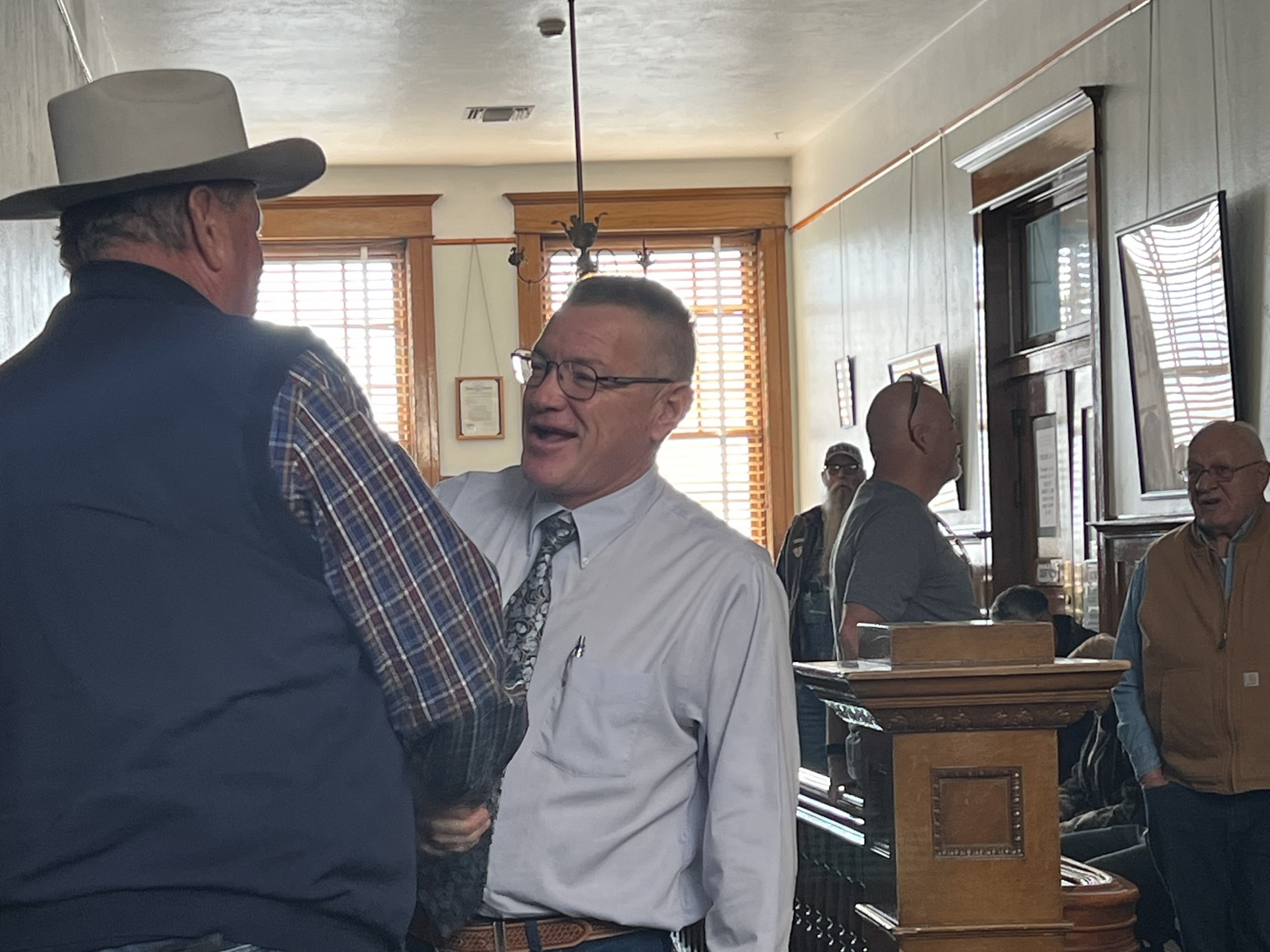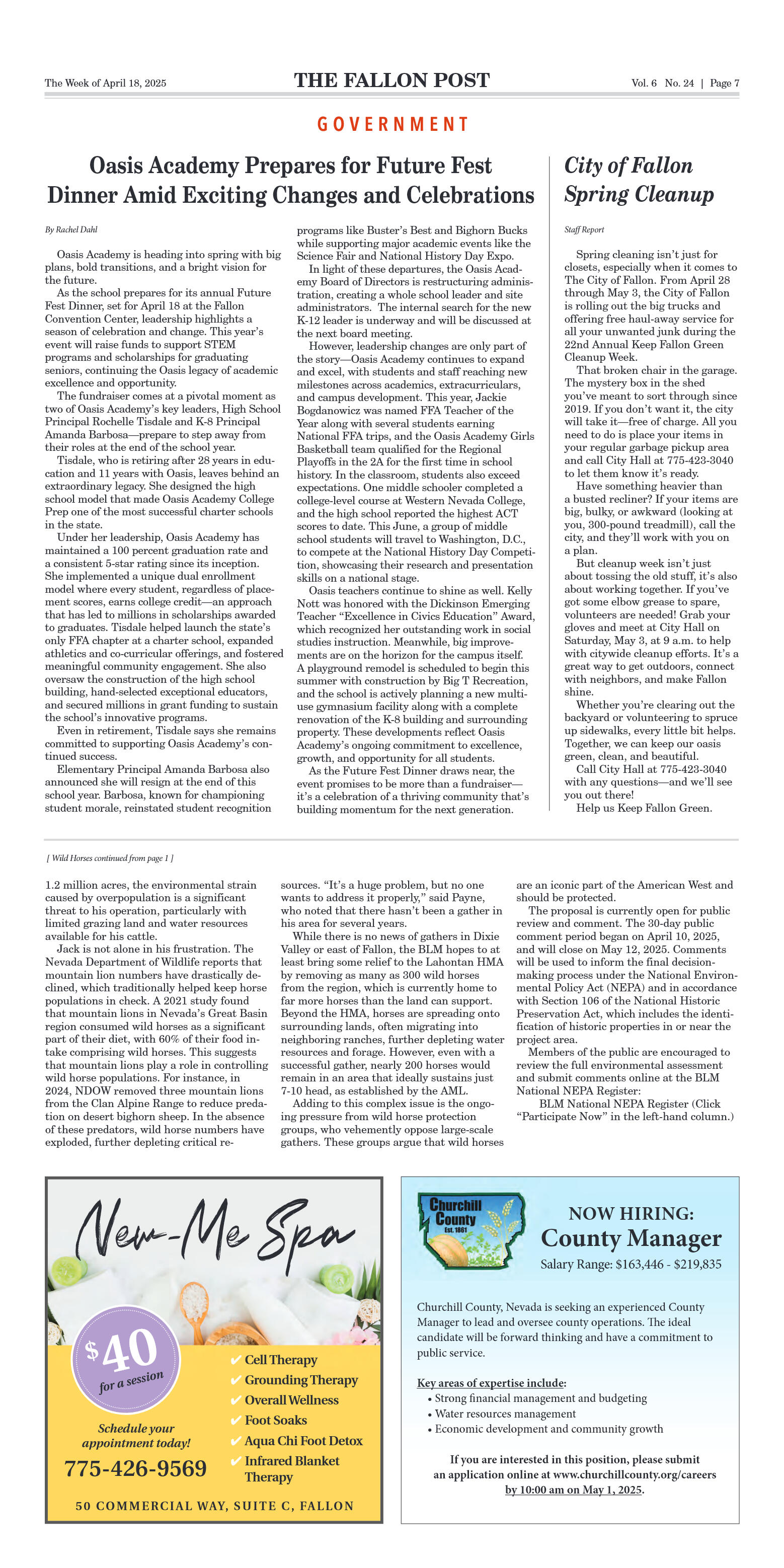.jpg)
Update: The Esmeralda County Commissioners have called an emergency meeting for April 24 at 1 p.m. regarding appointing and interim sheriff.
In a tense Esmeralda County Commission meeting last week, a local resident asked the question, “How can we trust a sheriff who never qualified to be one?” Around her, neighbors shifted in their seats—some nodding in agreement, others crossing their arms. Outside the building, rumors swirled that Sheriff Nick Dondero, despite a sealed domestic battery conviction and lack of peace officer certification, continued to carry a firearm and wear the badge.
That moment captured what had been simmering for more than a year: a battle over trust, law, transparency, and legitimacy. And last week, the Nevada Supreme Court ended the speculation.
“IT IS HEREBY ORDERED: Nicholas Dondero is unlawfully holding the office of Sheriff of Esmeralda County, and that he shall be immediately ousted and altogether excluded therefrom.”
So reads the ruling issued by the Nevada Supreme Court, ordering Esmeralda County Sheriff Nick Dondero to vacate office following a protracted legal battle over his eligibility to serve.

The decision stems from a writ of quo warranto issued by Fifth Judicial District Judge Kimberly Wanker and a writ of mandamus brought by Nevada Attorney General Aaron Ford. Together, the rulings conclude that Dondero failed to meet peace officer certification requirements and was further disqualified due to a prior domestic violence conviction.
On April 1, the Nevada Supreme Court overturned Wanker’s 2024 denial of summary judgment, which had blocked the state’s effort to remove Dondero from office. In their Order Granting Petition for a Writ of Mandamus, Justices Pickering, Cadish, and Lee wrote:
“Under the circumstances here, where the State argues that the material facts are undisputed and that the district court erroneously interpreted and applied the governing law, we elect to consider the State's petition.”
A writ of mandamus compels a government official, agency, or lower court to perform a legal duty. In Dondero’s case, it was used to force compliance with the state law requiring sheriff certification through Nevada POST (Peace Officer Standards and Training). In simple terms: the court said, You don’t get to opt out of this. It’s the law.
Despite the high court’s ruling, and as April 21, Dondero had not stepped down. Esmeralda County commissioners voted on April 15 to support him and pursue an appeal—potentially to the U.S. Supreme Court. The move followed a heated public meeting filled with sharp divisions over the sheriff’s leadership.
The state’s argument hinged on two key facts: Dondero never earned POST certification within the one-year timeframe required under NRS 289.555(1)(b), and he holds a disqualifying 2007 conviction for misdemeanor domestic battery.

But in a January 2024 district court hearing, the issue of POST certification became tangled in unusual reasoning—led not by Dondero’s defense, but by the bench itself. Judge Wanker took the lead in arguing that POST was to blame for Dondero’s lack of certification, a position later echoed by Dondero’s counsel, Augustus Claus, and Nye County Chief Deputy District Attorney Brian Kunzi, who represented Esmeralda County after its district attorney, Bob Glennon, conflicted off the case.
The Supreme Court rejected that framing.
Court documents filed April 22, 2025, confirm that Dondero never applied for POST certification—a fact corroborated by POST Executive Director Mike Sherlock. According to Sherlock, even if Dondero had applied after receiving POST’s August 2023 letter stating he was ineligible for certification, there would not have been enough time to complete the required training before the Jan. 2, 2024, deadline.
“Indeed, the record reflects that Dondero never applied for POST certification, either before or after receiving this letter, despite having the opportunity to do so,” continued the justices.
The second barrier to Dondero’s eligibility was his 2007 domestic battery conviction, which was sealed in 2016. But under Senate Bill 225, passed in 2023, individuals with such convictions are barred from serving as peace officers—even if the record is sealed.
“Sometimes, it is possible for people to slip through that fence because the conviction has been sealed,” said Sen. Dallas Harris, the bill’s sponsor. “That hole will be closed in this bill.”
.jpeg)
The court noted that the authenticity of Dondero’s 2007 judgment of conviction, in which he pleaded no contest, was not disputed.
Dondero remains a dividing figure in Esmeralda County. To some, he’s a no-nonsense sheriff with rural roots and a blunt style. To others, he’s a man who never should have worn the badge—a candidate who campaigned hard but ignored the rules that come with the job. Concerns about concealed weapon permits and his sealed record have followed him since early in his tenure.
But for now, the state’s highest court has spoken: Nick Dondero no longer holds the office of sheriff—lawfully or otherwise.
In text photos by Leanna Lehman.










































Comment
Comments